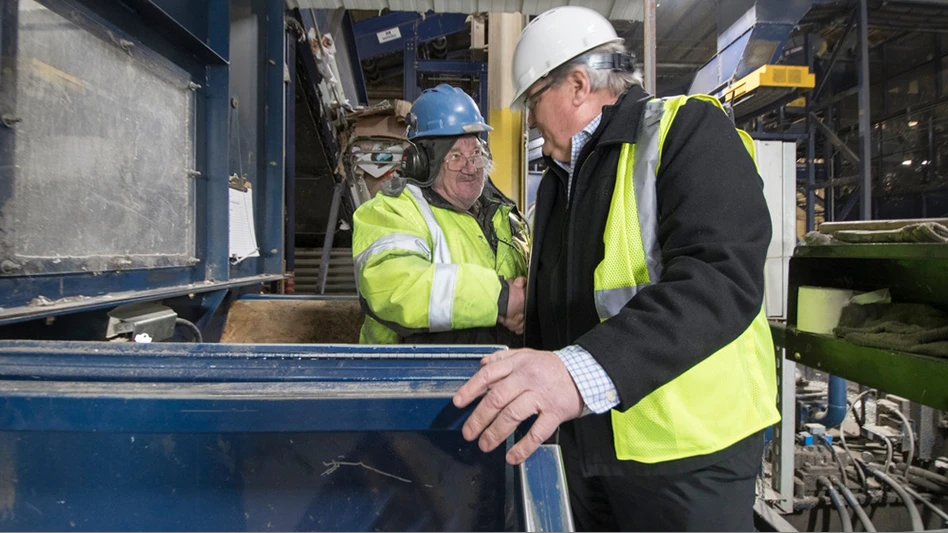
Photo from Waste Today photo archive
Starting July 31, The New York Department of Sanitation (DSNY) is requiring food-related business to begin recycling food scraps and other organic waste. This date comes at the end of a two-year warning period, which was extended because of the COVID pandemic.
“While we extended the grace period for a year at the height of the pandemic, city life is back, and we must now enforce this important law that will help keep our neighborhoods cleaner and greener,” says Sanitation Commissioner Jessica S. Tisch. “We all have a part to play in protecting our planet, and this is one way businesses can contribute.”
According to DSNY, businesses can comply with the law by arranging for collection of their organic material by a private carter, transporting the waste themselves or managing it on-site through in-vessel composting, which is subject to regulation with the Department and compliance with the city’s sewer discharge regulations.
After conducting a survey of regional processing facilities in 2019, the Department determined that sufficient processing capacity exists to manage the organic waste of the remaining businesses to be covered by rule under Local Law 146 of 2013. It proposed new rules that were adopted Jan. 31, 2020. Beginning July 31, 2020, the following NYC businesses were required to source-separate their staff-handled organic waste:
- food service establishments (such as restaurants, delis and coffee shops) having 7,000 to 14,999 square feet;
- chain food service establishments with two to 99 NYC locations with a combined floor area of 8,000 square feet or more;
- food service establishments in hotels having 100 to 149 guest rooms;
- retail food stores (such as supermarkets and grocery stores) having 10,000 to 24,999 square feet;
- chain retail food stores of three or more NYC locations with a combined floor area of 10,000 square feet or more;
- food preparation locations having 6,000 square feet or more;
- catering establishments hosting on-site events that are attended by more than 100 people; and
- temporary public events that are attended by more than 500 people.
All covered establishments are required to source-separate staff-handled organic waste, which includes all food scraps (including fruit and plant stems, meat, bones and dairy products, whether raw or cooked), plant trimmings, food soil paper and certified compostable products.
If businesses are using certified compostable products, DSNY says research to determine whether these products are accepted by their carters or organics processing methods is recommended. Businesses that use these products also must make sure that signs and labels are as detailed as possible to clearly instruct on what materials need to be separated from one another. Businesses are encouraged to switch to other reusable or recyclable items to avoid confusion and keep organics free from other recyclables.
Diverting this material from landfills is a key component of the city’s goal of sending zero waste to landfills, DSNY says.
Covered businesses have been sent notices in the mail, reminding them of the law and the beginning of enforcement. DSNY says it has resumed direct outreach after having put it on hold during the height of the pandemic.Latest from Waste Today
- Techbros launches AI-integrated electronics processing facility
- Understanding interchange optimization
- Account Updater: Keeping customer credit cards always up-to-date
- Understanding credit card fees
- CDRA names new executive director
- CRI credits DRS modifications for Connecticut container recycling rate boost
- LRS expands into Indianapolis with purchase of GHW
- Pelleting equipment: Transform hard-to-handle waste streams





